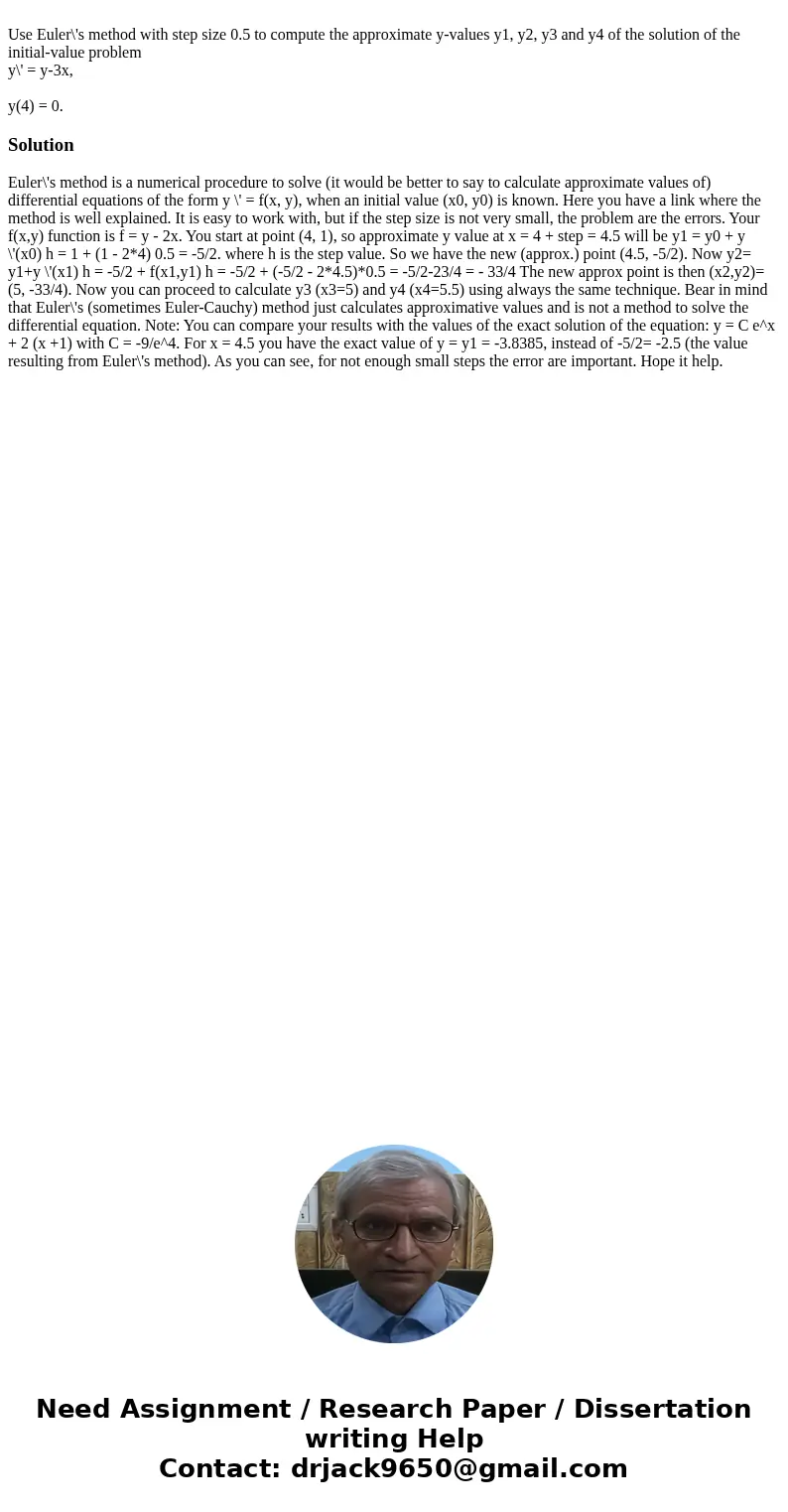Use Eulers method with step size 05 to compute the approxima
Use Euler\'s method with step size 0.5 to compute the approximate y-values y1, y2, y3 and y4 of the solution of the initial-value problem
y\' = y-3x,
y(4) = 0.
Solution
Euler\'s method is a numerical procedure to solve (it would be better to say to calculate approximate values of) differential equations of the form y \' = f(x, y), when an initial value (x0, y0) is known. Here you have a link where the method is well explained. It is easy to work with, but if the step size is not very small, the problem are the errors. Your f(x,y) function is f = y - 2x. You start at point (4, 1), so approximate y value at x = 4 + step = 4.5 will be y1 = y0 + y \'(x0) h = 1 + (1 - 2*4) 0.5 = -5/2. where h is the step value. So we have the new (approx.) point (4.5, -5/2). Now y2= y1+y \'(x1) h = -5/2 + f(x1,y1) h = -5/2 + (-5/2 - 2*4.5)*0.5 = -5/2-23/4 = - 33/4 The new approx point is then (x2,y2)=(5, -33/4). Now you can proceed to calculate y3 (x3=5) and y4 (x4=5.5) using always the same technique. Bear in mind that Euler\'s (sometimes Euler-Cauchy) method just calculates approximative values and is not a method to solve the differential equation. Note: You can compare your results with the values of the exact solution of the equation: y = C e^x + 2 (x +1) with C = -9/e^4. For x = 4.5 you have the exact value of y = y1 = -3.8385, instead of -5/2= -2.5 (the value resulting from Euler\'s method). As you can see, for not enough small steps the error are important. Hope it help.
 Homework Sourse
Homework Sourse